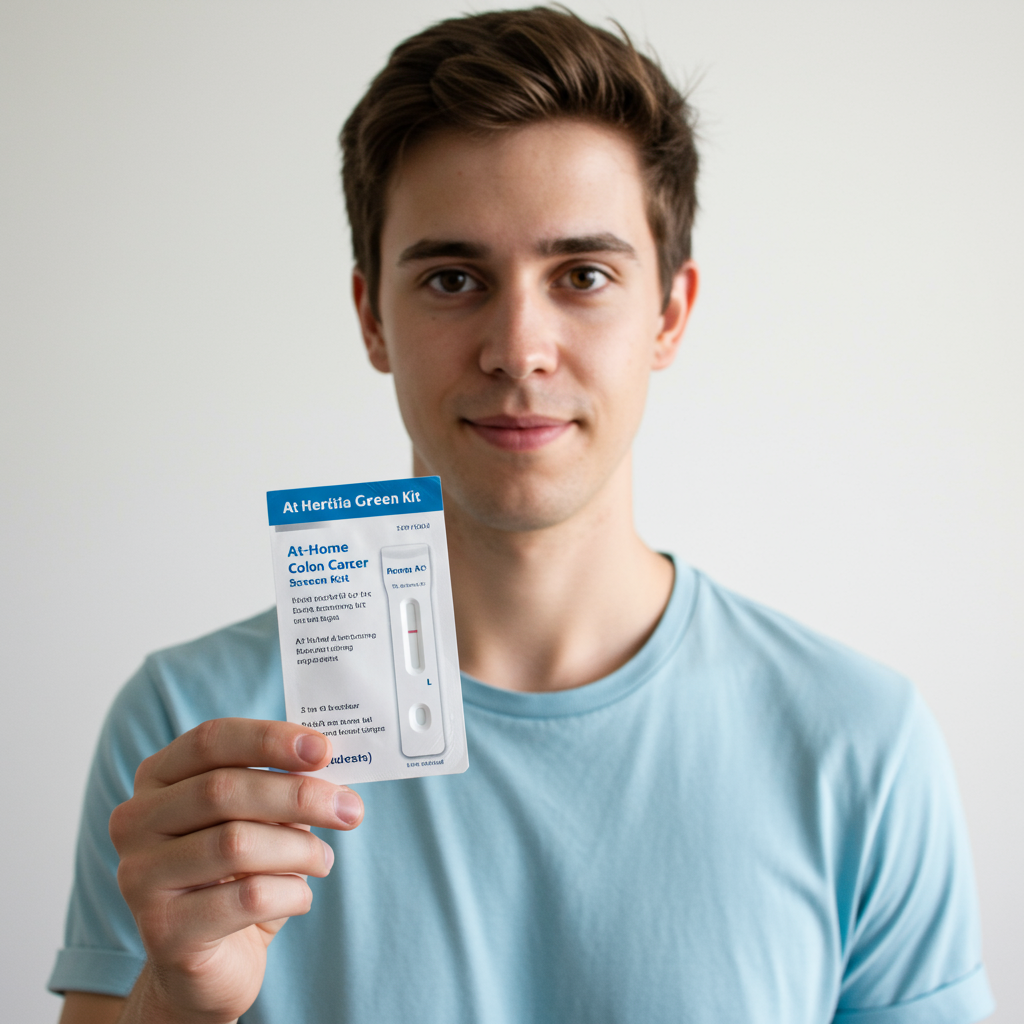Colon cancer cases are rising alarmingly among younger adults, a trend that has public health experts concerned. While standard screening often begins at age 45, proactive at-home testing offers a way to potentially detect early-onset colon cancer even before symptoms appear, significantly improving treatment outcomes.
One accessible option is the Fecal Immunochemical Test (FIT). This simple, at-home test screens a person’s stool sample for hidden blood, which can be a sign of cancerous or precancerous polyps that bleed.
How At-Home Stool Tests Work
Taking the test is straightforward. You typically order a kit online or through a healthcare provider. The kit contains instructions and materials to collect a small stool sample from your toilet bowl. This sample is then securely mailed to a designated laboratory for analysis.
In the lab, scientists use antibodies to detect tiny amounts of human hemoglobin (a protein in red blood cells) in the sample. If hemoglobin is found, the test result is considered positive, indicating the presence of blood that warrants further investigation.
Understanding Accuracy: FIT vs. Advanced Tests
The standard FIT test is FDA-approved and generally effective, capable of detecting approximately 80 percent of colon cancer cases. It typically costs around $49.
For higher accuracy, there are more advanced options like FIT with DNA screening or multi-target stool DNA tests (like Cologuard). These tests not only look for blood but also analyze cells in the stool sample for abnormal genetic changes associated with cancer. One type of FIT-DNA test can achieve up to 92 percent accuracy in detection, though these advanced tests come at a higher price point, potentially ranging from $121 (for some multi-target tests) up to $600.
It’s crucial to understand that a positive result from any of these stool tests does not definitively mean you have cancer. It simply indicates the need for follow-up testing, typically a colonoscopy.
Why a Colonoscopy is the Gold Standard
If an at-home test comes back positive, your doctor will likely recommend a colonoscopy. A colonoscopy is considered the most accurate screening method, capable of detecting about 99 percent of cancers and precancerous polyps. Importantly, during a colonoscopy, detected polyps can often be removed immediately, preventing them from potentially developing into cancer.
Rising Rates and Earlier Screening
The surge in colon cancer among younger adults is a major driver for considering earlier screening. Adults under 50 today are roughly twice as likely to be diagnosed with the disease compared to their grandparents’ generation. Data shows an alarming 85 percent spike in colon cancer rates among adults aged 25 to 29 over the past two decades. Conversely, rates have dropped by 30 percent among those over 50 in the last 30 years, largely attributed to increased screening in that age group.
A recent study highlighted the benefit of screening in the 40s, finding that individuals who used the FIT method between the ages of 40 and 49 were 39 percent less likely to die from colon cancer than those who waited until age 50 or older to be tested. This evidence supports calls from some physicians to consider starting screening before the currently recommended age of 45 for individuals at average risk.
Important Considerations and Follow-Up
While at-home tests are valuable tools for early detection, they are not perfect. It’s estimated that about 5 to 10 percent of patients with a positive stool test result do not actually have colon cancer or advanced polyps (false positives). The false positive rate for a colonoscopy, on the other hand, is below one percent.
This underscores the critical importance of following up with your doctor to discuss your test results and determine the necessary next steps, such as scheduling a colonoscopy. At-home stool tests are typically recommended for annual use, as this frequency can help catch slower-growing early cancers.
For average-risk patients over 45, these tests are often covered by health insurance plans. However, anyone can purchase these tests directly from labs and providers regardless of age or risk factors if they wish to screen proactively.
A Real-World Example
Christine Bronstein, a seemingly healthy 48-year-old, discovered the importance of at-home testing firsthand. Despite exercising regularly and maintaining a healthy lifestyle, she noticed blood in her stool in 2021. Prompted by this symptom, she ordered a stool-based test. When it came back positive, she quickly saw her doctor, which led to a colonoscopy. She was diagnosed with stage three colon cancer, with a two-inch tumor found in her rectum.
Bronstein shared that she felt “very lucky” to have tested when she did, noting how aggressive the disease can be in younger individuals. Her experience highlights that symptoms can sometimes be subtle or dismissed, making proactive screening methods like at-home tests potentially life-saving in catching the disease early when it’s most treatable.
As colon cancer continues its concerning rise in younger populations, understanding and utilizing available screening methods like the FIT and advanced stool DNA tests offers a vital opportunity for early detection and improved health outcomes.




